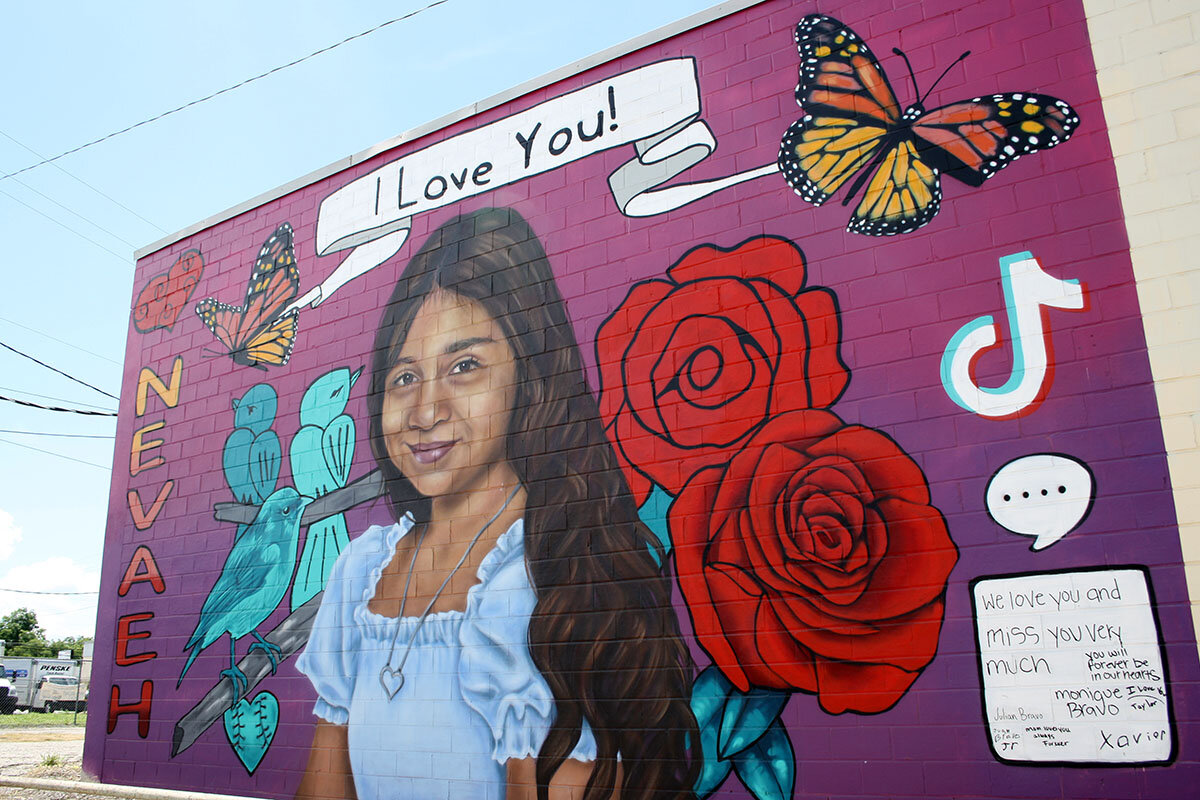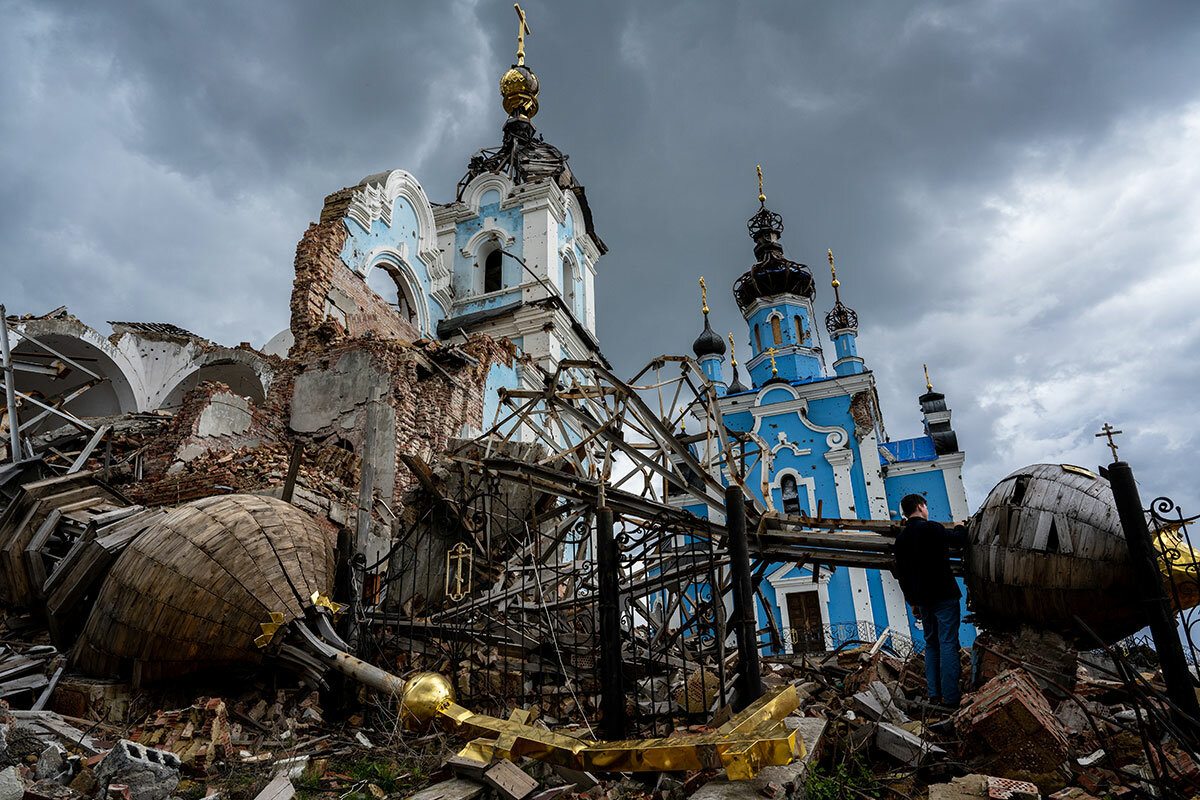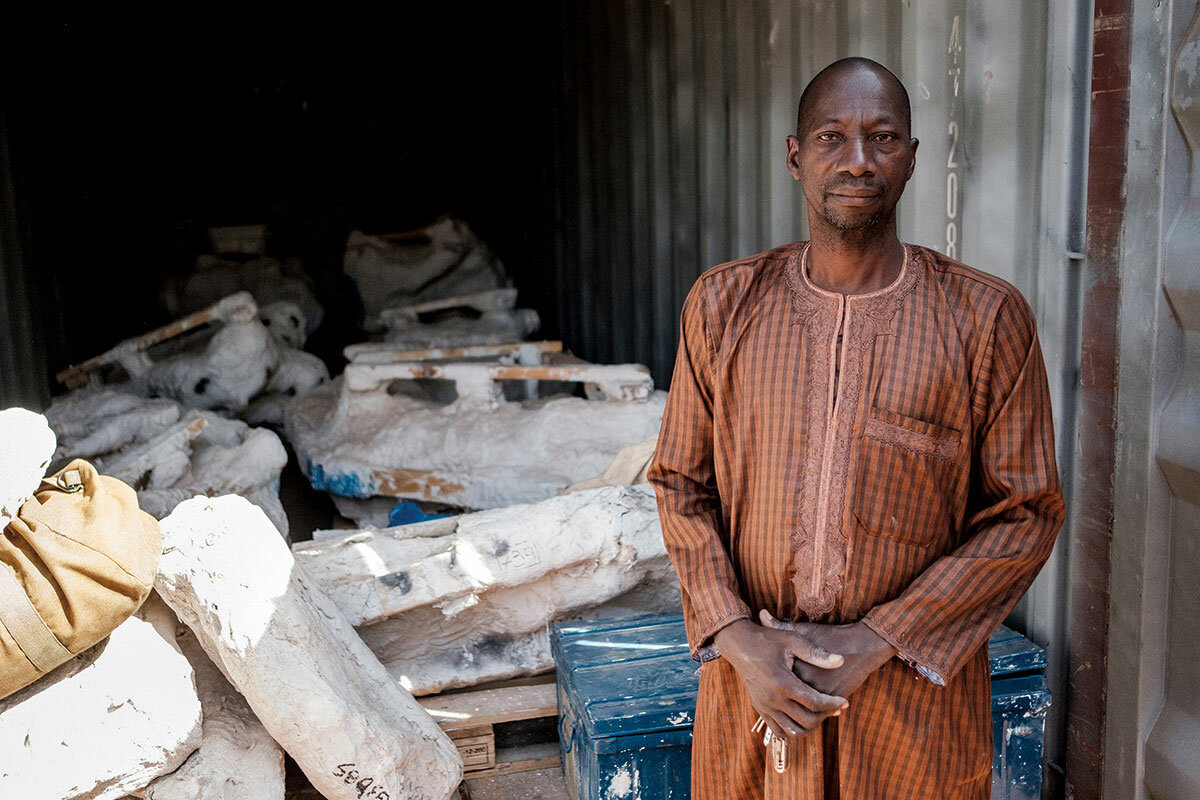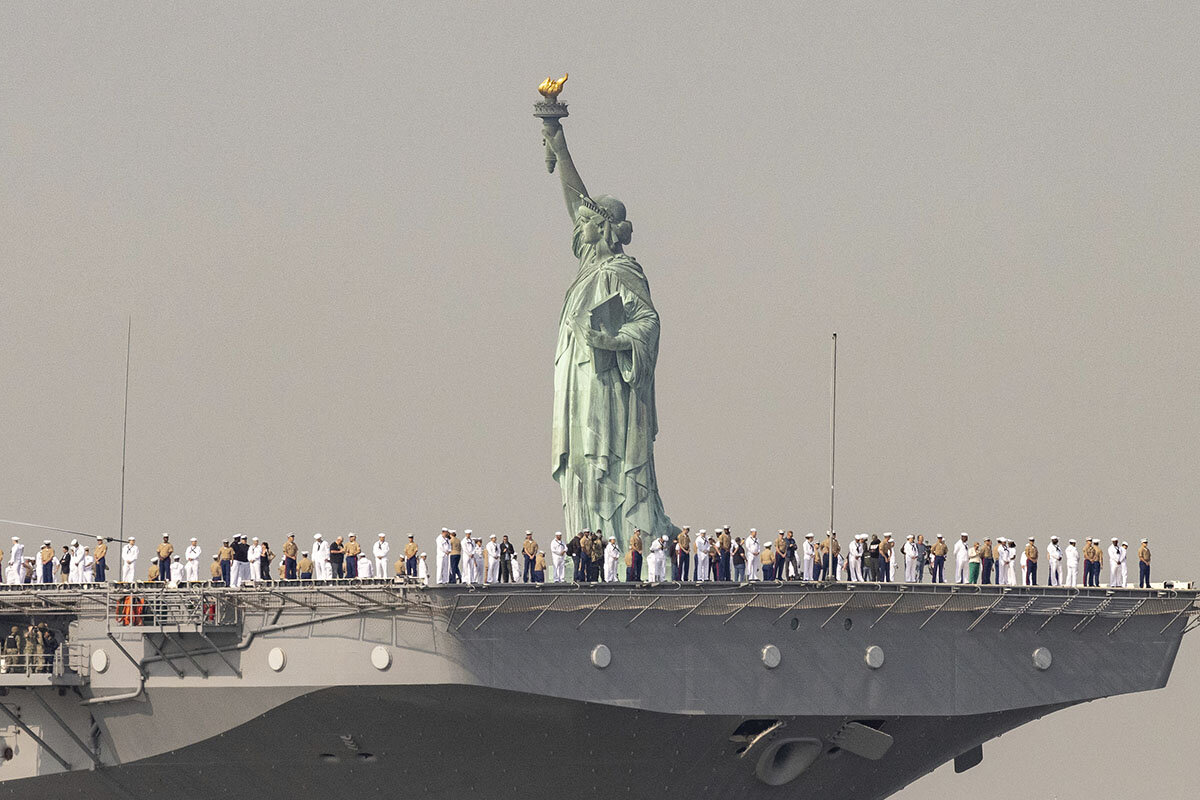The crucible of profound shock and grief after school shootings has also spurred some people to become agents of change. One year after Uvalde, three activists share their stories.
Monitor Daily Podcast
- Follow us:
- Apple Podcasts
- Spotify
- RSS Feed
- Download
 Henry Gass
Henry Gass
Grief is a journey – and a long, complicated one at that.
Uvalde, Texas, will never be the same after the horrific shooting at Robb Elementary School last May. It has been a difficult, surreal year for a town that, like so many others, never thought it would be anything other than a quiet, anonymous town. For anyone, grief can be difficult. Now make it unexpected, add a global media frenzy and a heavy dose of politics, and multiply it by a population of 15,000, and you can begin to imagine what the last 12 months have been like in Uvalde.
The town was shellshocked when I visited a year ago. The town I visited last week was quiet, but eerie. Almost normal. Twenty-one white crosses are staked in front of a “Welcome to Uvalde” sign. Twenty-one white crosses surround the fountain downtown, decorated with stuffed animals and superhero action figures that filled my eyes with tears. Traffic rolled by as normal. Pedestrians glanced at the memorial as they continued about their day.
“Everyone is walking on eggshells,” one local told me last week. It’s one reason the Monitor chose last week to visit. One fewer journalist in Uvalde today is no bad thing, we thought. The town has been grieving, and it has been tense and divided.
Our story today will describe that in more detail. It looks at the aftermath, at the past year, at the living. Here I want to devote a few words to those who are no longer here. Today is as much about them as anything, and anyone, else. Tess Mata will never throw another softball. Rojelio Torres will never catch another football. Eva Mireles will never go on another hike. Maite Rodriguez will never study marine biology.
Today, I’m thinking of those 19 children and two teachers. Today, Uvalde will be honoring them, and as the town journeys toward calmer waters, it will never forget them.











